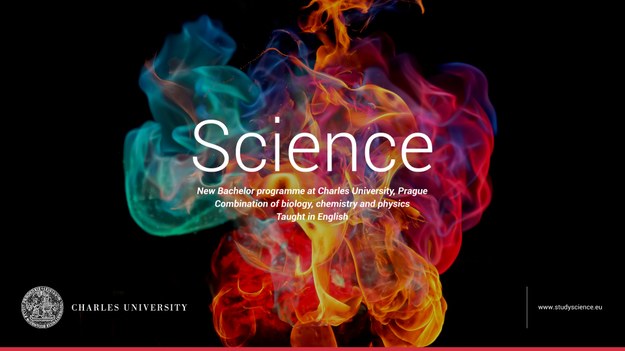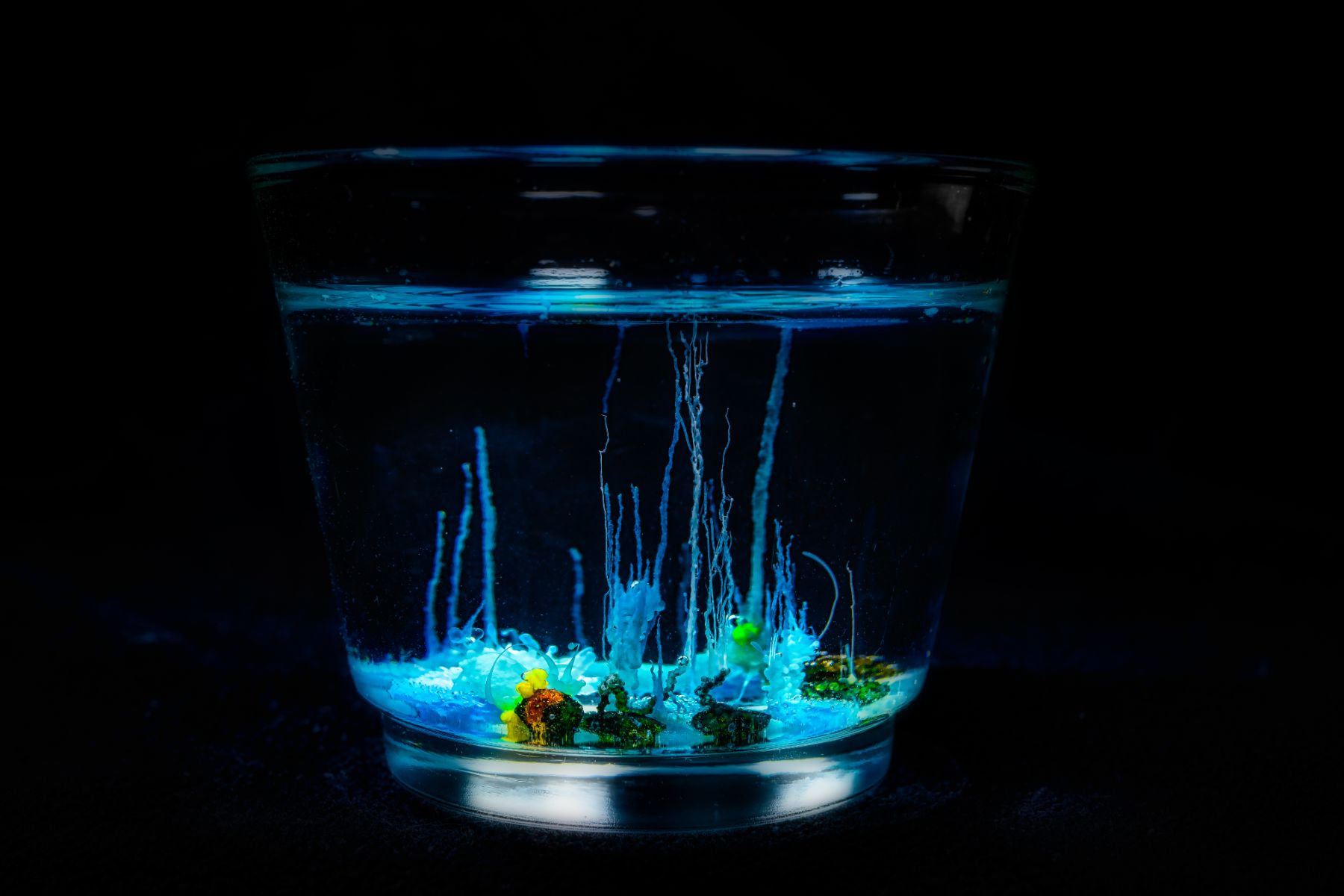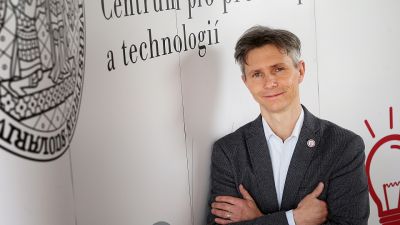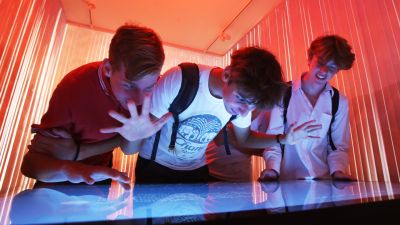“The era of superspecialists is coming to an end, the future belongs to graduates who can connect individual disciplines and find solutions to complex problems,” says biologist Jan Černý. That is why the Faculty of Science and the Faculty of Mathematics and Physics agreed on a new Bachelor program called Science at CU.
“We put together a bachelor's degree programme we ourselves would enjoy and would have liked to study – and hope it will be enjoyable and interesting for future students,” says one of the proponents of the new programme, biologist Jan Černý from the Faculty of Science of Charles University. The spark came from an informal meeting: “In May 2020, on my 50th birthday party, I met Professor Petr Nachtigall and we both agreed that we were – right in the middle of exam period – swamped by the number of students, and that we were annoyed that we didn't have the space to focus more on the real talent. We felt there was shortage of ideas... And it turned out to be a work of creative synergy, with me starting the idea and Petr finishing it,” Černý recalls.
It was clear from the beginning that likeminded partners would be required, so they started approaching the best from both the faculties of Science and Mathematics and Physics. “Our idea triggered an avalanche - top scientists, including many holders of prestigious European ERC grants, started to apply themselves and are still applying. Their other common feature is that they all have experience from the best universities abroad and they see this as a boost and an opportunity to pass on their talent and enthusiasm in the Czech academic system as well,” says the main guarantor of the programme, adding that all enthusiasts, regardless of their current location, are welcome.

From left: Jan Černý, his colleague Petr Nachtigall who died late last year, Filip Uhlík and Jana Kalbáčová Vejpravová.
Cambridge as inspiration
The organisers were inspired in many ways by the Natural Sciences study programme at Cambridge. “We use what works. It may sound pompous, but our ambition is really to create a ‘small Cambridge’ in Prague that will be attractive for Czech and foreign students,” says Černý, who believes that after three years, graduates should complete the degree and be in demand anywhere in the world.
They therefore created brand new interactive and problem-oriented courses that erase barriers between disciplines. “In addition, we would like every student to have a tutor right from the start of their studies who will guide them and together they will look for the ideal direction for their future. Our goal is not to produce students for any particular faculty follow-up Master's programme, but to prepare professionals of the future who will have overlap and insight into multiple disciplines. And that may well mean that after three years we will pass the imaginary baton to other educational institutions.”
The 4EU+ consortium, for example, bringing together seven prestigious European universities, also wants to collaborate on teaching. “We want to offer diversity, it's no longer about knowing concepts, but rather about finding connections and being able to apply them, which is why we will put so much emphasis on developing presentation, communication and other 'soft' skills. For example, the study will also include so-called 'endless seminars', where we will invite people every week who excel in something - ideally interdisciplinary - and can inspire.”
|
Who is the new Science degree programme for? Jan Černý explains:
- For those who enjoy the natural sciences but can't or won't choose between maths, physics, biology or chemistry. “The era of super-specialists is coming to an end - the future belongs to graduates who can connect individual disciplines and find solutions in a complex world. So-called soft skills - rhetoric, presentation, writing, science communication - will be an important part of the studies. For example, we will be collaborating with the journal Vesmír.”
- For those who enjoy thinking. “We don't care too much about grades, rather we want to see enthusiasm and success in something other than school grades.”
- For inquisitive problem solvers who are not afraid of challenges. “The subjects of the first two years of study are a given; the third year, on the other hand, will be completely individual. We want to encourage curiosity. It will be all about questions rather than answers. Each student will have a tutor-guide and together they will create the best learning path so that at the end there will be a graduate who will be of interest anywhere in the world.”
- For those with a strong command of English. “The language of science is English, so it didn't make sense for us to look for alternatives. Moreover, we want to be open to the world - to foreign students and also to use the best experts from abroad to teach.”eského systému, nešlo to udělat jinak. Ale nabízíme stipendia! Již v této chvíli se zdá, že jich máme přislíbeno více než deset, takže finance by neměly být významnou limitací.“
You can find more information here. Important: Registration is open until the end of February. |
We were from Mars!
The accreditation process was surprisingly the most difficult, says Jan Černý. Perhaps they were a little naïve, expecting to share our enthusiasm about the idea of a new interdisciplinary program. The opposite was true in many cases - what could have been complicated or prolonged became complicated or prolonged, which is why the first students can only apply this year. “For almost all the boards that our accreditation application went through, we were 'Martians'; they found it strange, to say the least, that the entire program would be in English, that we wanted to give each student such individual attention. And we had to defend the name of the programme - Science – to the fullest.
On the other hand, we met a number of enthusiastic supporters in both faculties. In the end, we managed to convince most of them that our model is sustainable, that it could work and that it will find its room in the Czech milieu. We are now looking forward to the first students, although we know that the first year will be very challenging,” Černý says, adding that they will be happy to share their experience with other enthusiasts and innovators at any time.
A scholarship in Petr Nachtigall's name
The whole story of the unique Science curriculum ended with a tragic loss: Petr Nachtigall died at the end of last year. “We put the whole thing together during his battle with one of the most insidious cancer diagnoses. Petr was a tremendous fighter, always believing that he would overcome the disease and use his professional erudition and teaching enthusiasm to the fullest in the new programme. As a phenomenal scientist, however, he was aware that his publications and scientific results would one day be surpassed, and at some points, perhaps even that he did not have much time left. Therefore, he wanted to build something that would endure in the academic world and have a lasting impact. We talked about this with his family after his death and we agreed that this was a project that brought him joy and he had done his best to make it happen over the last two years. It's all the more motivation for us now to succeed, be the best we can be and aim really high,” Jan Černý confirmed. One of the scholarships to be awarded will be donated by the family of Petr Nachtigall and will be called the "Petr and Gabriela Nachtigall Scholarship for Exceptional Natural Science Talent".
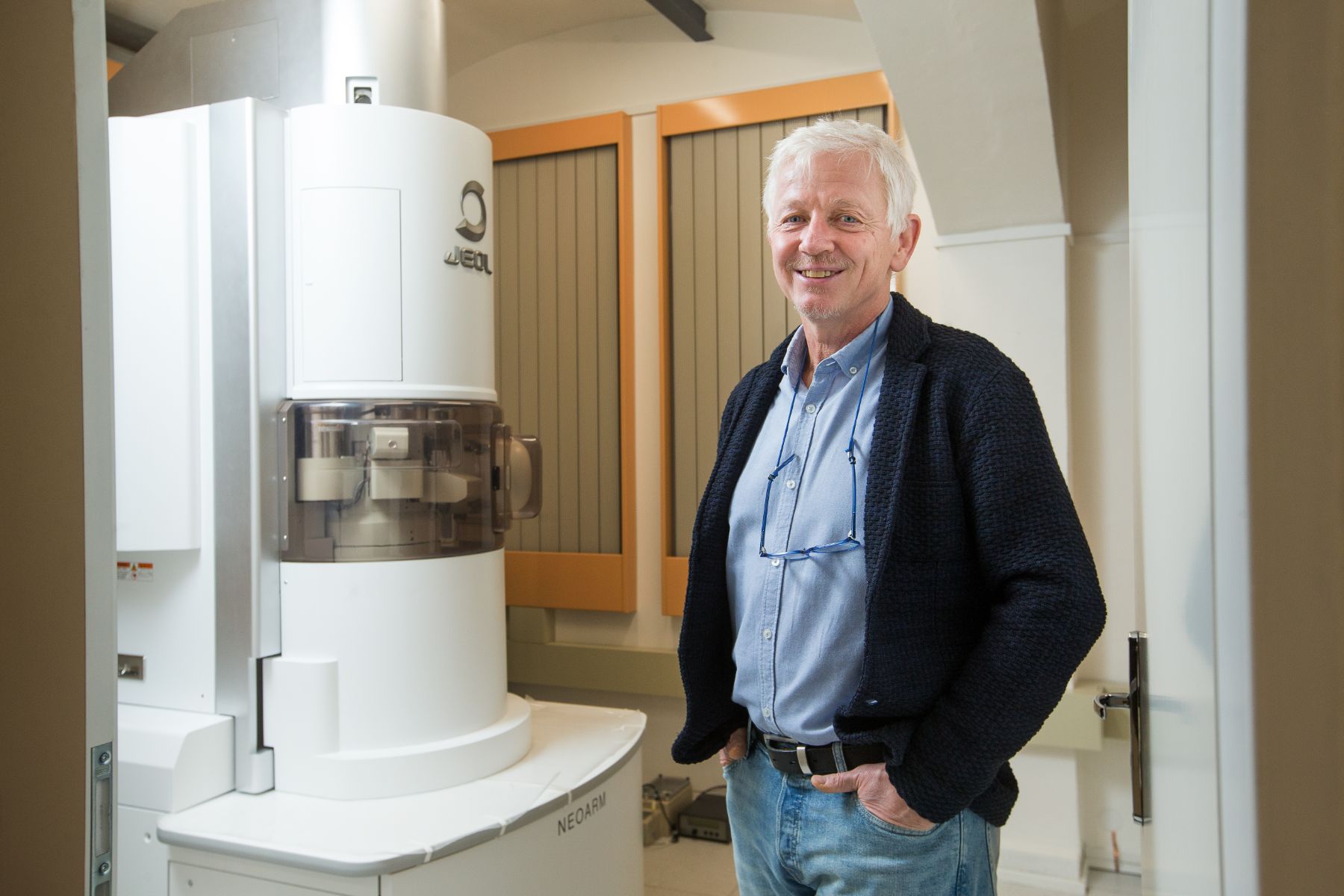
Fondly remembered and greatly missed since his death in late 2021. Petr Nachtigall. Nachtigall received a Donatio research grant in 2021 and
was key in putting together the unique Bachelor’s progamme Science. Sadly, he lost his battle with cancer last year.


